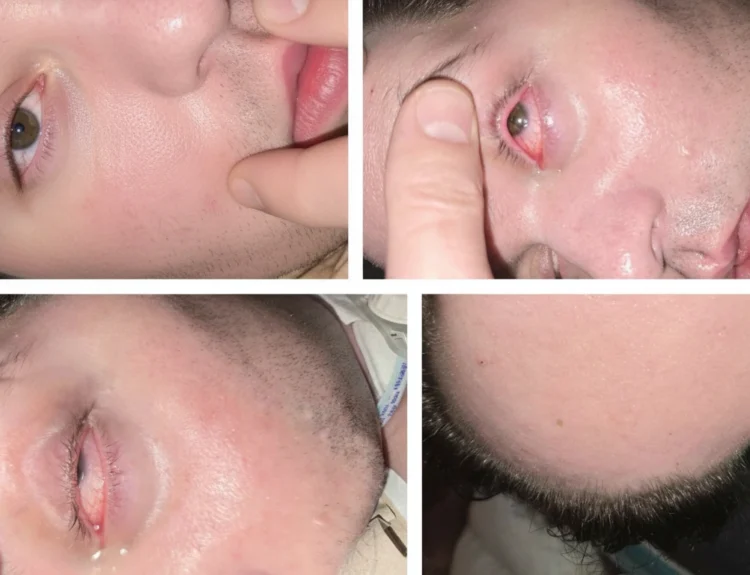I rarely have only positive things to say about a doctor, a practice, an outpatient clinic or a hospital. This may be due to my personal high standards. But the point is that it is quite possible to live up to my expectations. And to do so unstrained, as if it were a matter of course. For less money than others want from you, who neither look you in the eye when they deliver the diagnosis of ALS nor explain what it means. I'll never forget how, during the normal daily round in the three-bed room, I was told in short that I had a neurodegenerative muscle disease that they knew too little about to be able to do anything about it. From now on I would be given Riluzol, vitamin C and creatine. The latter two I would have to get at the fitness store or something. Oh, and I shouldn't believe everything Dr. Google says. They would then put me in touch with the appropriate contacts, also for psychological support.
∞
My experience with the RKU in Ulm shows that it can be done differently. At the time, I wanted a competent second opinion to convince me that I really do have amyotrophic lateral sclerosis (ALS). I am by nature, how shall I say it, very scientific and extremely black and white. I don't really care about people. Just like opinions. I believe in things that I can measure or prove. A diagnosis that starts with "suspicion of", is made by a (charismatic) heart surgeon and is unconvincingly determined for me by the bored prof, does not fit into my world view. I needed someone with real expertise in the field. After some research, the Charite in Berlin or Prof. Ludolph in Ulm came into question. Ulm is much closer for me. And don't ask me why, somehow totally likeable. From the first phone call, where questions were answered without giving the impression of being annoyed, to the appointment. Even that went smoothly, although I really wanted to go to the professor's private outpatient clinic. Although he is "the man" par excellence for the diagnosis and treatment of ALS, the dear AOK does not pay. Too bad. So we agreed to pay ourselves. I'd rather go to the specialist once and pay myself than meet five other doctors who can't look me in the eye.
The first impression in the ambulance confirmed my wildest hopes. Clean, busy, but without any noticeable hustle and bustle. Organised, competent, prepared. Already at the registration desk, they had a ready-made medical file on me. It contained all the documents I had sent in advance. Something like that has never happened to me before. The Friedrich Bau Institute doesn't even have my own documents from the last visit for in-patient stays of several days. Although I always send them in advance by e-mail. Supposedly they don't have access for data protection reasons. If anyone there had ever seriously dealt with me, they would have known that I not only like to twist the law, but am also a certified data protection officer. Whenever I mention this, everyone is suddenly very quiet. So embarrassing.
In Ulm, a difference like night and day. The professor and the doctor who examined me beforehand knew my medical history. They had even shown my DVD from the MRI to a specialist in spinal damage to be able to rule out a possible connection with the not exactly few protusions. I have never experienced anyone so well prepared again.
I found the approach impressive. Dr Witzel examined me first. All the technical gimmicks were dispensed with. The data was available and known. There was no reason to doubt them. I never understood the reason why everyone else needed their own EMG, a bloody painfully unpleasant thing. All came to the same conclusion. Who would have thought. No, here was feeling, palpating, trying, observing and, something unprecedented, talking and listening. Suddenly someone wanted to know exactly what I meant by problems in sport. When running? How exactly, what surface, what kind of footwear, did you know the route? Both Dr Witzel and Prof Lodolph examined me physically as well as, how do I describe it? Yes, they were the first to take a proper medical history. Such a valid personal survey, plus technical examinations, labs and findings from five other neurologists, along with countless other doctors, alternative practitioners and whatever else was crawling around. And the concentrated load of skills, knowledge and experience of decades of research and treatment of ALS. And everything is eclipsed by the emphatic aura of the professor. And no, I'm not on drugs. Haven't smoked any more weed than usual. It's really like that. There's something about him, let's say, you walk out after less than three hours convinced you now have the certainty. And yet you're a happier person than you were three hours before. Schizophrenic, isn't it?
∞
What did the fun of such an appointment cost me? Well, let me put it this way, my clients pay more for my counselling hour than the entire appointment in Ulm cost me. Considerably more. One thing is for sure, no one will get rich there. Prof. Ludolph and his team don't get so involved for the sake of money, but out of conviction. I pay them all my utmost respect.







